
The Global Marketing Show, hosted by Wendy Pease at Rapport International, helps growth-minded marketers expand into international markets and boost multilingual lead generation and revenue. Each episode features experts from industries like medical devices, industrial manufacturing, consumer brands, government, and education sharing real-world lessons on how to go global the right way. Discover actionable strategies for translation, localization, transcreation, and cultural adaptation, plus insights on the technologies, workflows, and quality standards that drive global marketing success. Whether you manage global campaigns, oversee multilingual content, or lead international sales, this podcast is your guide to building a brand that connects across languages and cultures.
The Global Marketing Show, hosted by Wendy Pease at Rapport International, helps growth-minded marketers expand into international markets and boost multilingual lead generation and revenue. Each episode features experts from industries like medical devices, industrial manufacturing, consumer brands, government, and education sharing real-world lessons on how to go global the right way. Discover actionable strategies for translation, localization, transcreation, and cultural adaptation, plus insights on the technologies, workflows, and quality standards that drive global marketing success. Whether you manage global campaigns, oversee multilingual content, or lead international sales, this podcast is your guide to building a brand that connects across languages and cultures.
Episodes
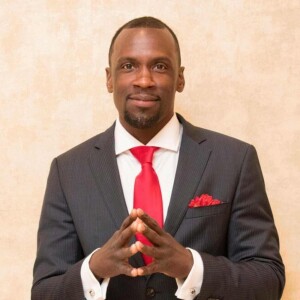
Wednesday Mar 01, 2023
Look Within and Leverage - Show #103
Wednesday Mar 01, 2023
Wednesday Mar 01, 2023
Devon Mitchell is CEO of DSN Energy Corporation. A competitive duathlete, aeronautical engineer, MBA, entrepreneur, and leadership expert, Mitchell founded DSN to facilitate strategic partnerships with US-based businesses, academic institutions, and nonprofit organizations to provide training, mentoring, and leadership programs to the oil and gas sector in Guyana.
Mitchell’s family migrated from Guyana to the US when he was 10 and since, he has found success and a fruitful business network as an aeronautical engineer and Anytime Fitness franchise owner.
When Exxon Mobil, several years ago, discovered in Guyana one of the largest hidden oil reserves outside of the Middle East, Mitchell immediately recognized the opportunity to give back to his home country, his specific intent being to engage the Guyanese workforce and ensure they benefit from their own economy.
The only English-speaking country in South America, the Guyanese culture trends closer to the Caribbean, with British influences on education, for example. A country of fewer than 1 million, a sizeable number of people leave the country to work or study – drawing those residents back to Guyana could prove essential to engagement, and that will only be realized by creating opportunities.
From that vantage point of having first-hand knowledge of Guyanese culture and close personal connections, Mitchell decided to “look within and leverage” the skills and connections he acquired in the US to revive opportunities in Guyana. It’s a repeatable process of bringing diversity of thought and problem-solving to every country with an emerging, frontier market.
Connect with Wendy - https://www.linkedin.com/in/wendypease/
Connect with Devon –
https://www.linkedin.com/in/devon-mitchell-038079137/
Music: Fiddle-De-Dee by Shane Ivers - https://www.silvermansound.com
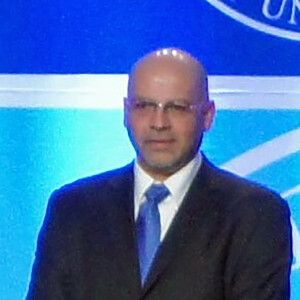
Wednesday Feb 22, 2023
Bringing Renewable Energy to the Amazon - Show #102
Wednesday Feb 22, 2023
Wednesday Feb 22, 2023
Jorge Sanchez is President and CEO of San Antonio-based Thor Energy, which develops and finances energy-efficient projects throughout Mexico and South America.
Sanchez tells the fascinating story of how a start in his family’s business turned into Thor Energy, and how simply listening – to your customers, yourself, your children – holds the key to differentiating yourself from the competition.
From the start, Sanchez listened to customers’ specific needs and found a foothold selling locomotive parts to Mexican businesses. Leveraging the common language, Sanchez quickly expanded into South America, and listened when businesses in the marine and oil and gas industries – both of which utilize the same parts as the auto industry – asked for his services as well. At every turn, says Sanchez, listening to customers and their needs catapulted Thor over their competitors.
The move from oil and gas and fossil fuels to renewable energy occurred when Sanchez’s daughter presented a school project on renewable energy; it was the moment he recognized not only the opportunity, but also an immediate need, to pivot in that direction.
Sanchez seamlessly transitioned the company into a service that recognizes a problem, identifies the technology to solve it, then finds funding for the partnership. In this instance, he explains, Thor quickly overtook the competition by adding the financing piece. Even large, State-run companies throughout South America often lack the financing up front to address pressing issues in the Amazon, he explains. Thor Energy can simultaneously find the partners and technology for a solution and conduct a visibility study to secure the financing to push projects forward.
Culturally, each country is its own entity, says Sanchez. To help bridge the gaps, pay attention to “country briefings” from the US Department of Commerce and utilize the services of the US Commercial Service and your local District Export Councils (DECs), both of which will open doors to the whole world.
Links:
United States Commercial Services - https://www.trade.gov/let-our-experts-help-0
National Association of District Export Councils - https://www.usaexporter.org/
The International Trade Administration’s Country Commercial Guides - https://www.trade.gov/ccg-landing-page
Connect with Wendy - https://www.linkedin.com/in/wendypease/
Connect with Jorge –
https://www.linkedin.com/in/jorge-g-sanchez-3151950/
Music: Fiddle-De-Dee by Shane Ivers - https://www.silvermansound.com
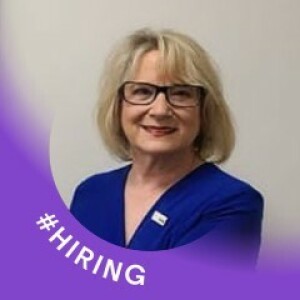
Wednesday Feb 08, 2023
Delaware, the Eastern Gateway to the US - Show #101
Wednesday Feb 08, 2023
Wednesday Feb 08, 2023
Carla Sydney Stone is President of the World Trade Center Delaware, which champions international opportunity through cultural programs, training in logistics and financing, and helps with market research. Its services include finding and evaluating trade leads, direction in hiring oversees, finding partner organizations and agencies, trade missions, and facilitating conferences and exhibits.
An engineer at heart, Stone’s career originated in geophysics and mining, about which she says: “Minerals flunk geography, making it an international industry.” From there she traveled the world; she has been to every continent except Antarctica (which is on her to-do list) then segued into banking, where engineers are essential for proper industry valuations, and ultimately landing in technical assistance to the “alphabet soup of [government] agencies” and academia.
Just prior to the WTC Delaware, Stone found herself at the intersection of engineering and public health (water, energy, avian influenza, telemedicine). Her work with NATO introduced
telemedicine into rural and remote areas of several countries.
The WTC Delaware has ushered a countless number of businesses onto the international stage. Why should companies export? “To start, over 95% of consumers live outside the US,” says Stone. In addition, companies that export are more stable, riding out downturns in the economy better due to customer diversity. They can also easily adjust by way of foreign exchange, leveraging exchange rates and seasonal business, for instance.
A good example is Delaware’s Port of Wilmington, which is not only the largest banana port but also brings to the US produce from around the world. It boasts the largest cold storage and fumigation capacities in the US and organizes its import/export relationships seasonally. Companies that export have a “variety of places to buy and sell. In addition, these businesses are more profitable, stay in business longer, and pay employees more.”
Stone recommends that companies expanding into new countries “read, read, read.” For countries with diaspora communities, don’t be afraid to call related organizations for help with inroads; build relationships with anyone with feet in both communities.
Know that culturally, even gestures can get lost in translation and can affect a meeting insofar as its pacing, attendee reactions, etc. In Bulgaria, for instance, tilting your head left and right means “yes,” a nod up and down, “no.” “Many countries say ‘we will only do business with our friends,’” says Stone, “so relationship-building is essential.”
Links:
https://www.portofwilmington.com/
Connect with Wendy - https://www.linkedin.com/in/wendypease/
Connect with Carla - https://www.linkedin.com/in/carlasstone/
Music: Fiddle-De-Dee by Shane Ivers - https://www.silvermansound.com

Wednesday Feb 01, 2023
Envisioning Africa’s One Payment System - Show #100
Wednesday Feb 01, 2023
Wednesday Feb 01, 2023
Fatima Almeida, CEO and Founder of Angola-based BayQi, has a vision. Historically, online purchasing and payment systems have been problematic throughout Africa. Myriad issues are to blame, general access being the main obstacle; for example, in Angola there is a prohibitively high Visa interest rate.
To promote financial inclusion, BayQi combined ecommerce and fintech to create a “super app” that now connects the 12 million people of Angola with the rest of the world. Backed by a license from the National Bank of Angola, the system currently relies on the national currency (the Angolan Kwanza) and BayQi further envisions a one-payment system that will ultimately service all of Africa, in partnership with larger, known creditors such as Visa.
The platform is currently available in Portuguese, English, French, and Italian. Most African people speak one of these languages, says Almeida, but BayQi is positioned to expand its offering according to what the future demands.
Any African-based business struggles with access to resources, reports Almeida, but no matter: Africa can deliver what is needed and “we can create something for the world to use as well.”
Links:
https://www.state.gov/africasummit/
Connect with Wendy - https://www.linkedin.com/in/wendypease/
Connect with Fatima –
https://www.linkedin.com/in/f%C3%A1tima-almeida-15b024116/
Music: Fiddle-De-Dee by Shane Ivers - https://www.silvermansound.com
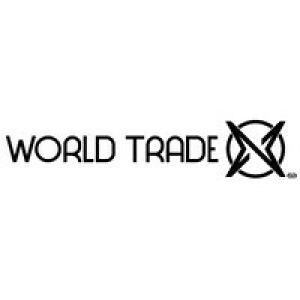
Wednesday Jan 25, 2023
Revolutionizing International Agriculture Trade - Show #99
Wednesday Jan 25, 2023
Wednesday Jan 25, 2023
Michael Thornton, Founder and CEO of World TradeX, is turning his using his experience and passion to create a revolutionary new buy and sell platform focused on agriculture.
When launched World TradeX will be a global buy and sell platform to support the world food chain. There’s currently nothing like it available to help farmers sell their goods in a one-to-one transaction, eliminating the middleman. They’re envisioning the platform will be the Amazon for food.
Covering the whole process from farmer to purchaser including logistics, finance, insurance and of course the purchase transaction all in one place.
Listen as Michael explains how World TradeX takes the best functionality of other apps and technologies (like amazon, uber and even tinder) and integrates it into their system. Farmers will be able to create profile and product cards that will be used as NFTs that can be tracked as the goods move along the process. Also, with NFTs they’re even envisioning buyers will be able to purchase future crops at today’s prices.
In 2023 World TradeX will go live in California as a beta. Once the kinks are worked out their plan is to expand further in the US then internationally, focusing on two of the world’s largest agricultural producing countries, India and Brazil.
“Everyone has to eat” says Michael and thinks once it’s up and running that the app will sell itself. Currently farmers go through brokers/agents that take 20-30% of their profit. This new system, with a much smaller flat rate and no need for the middleman, means more money for the farmers selling their products and smaller price tags for the buyers.
They’ve been working for 7 years to get the idea out in CA through trade shows and networking. When it launches, he believes word of mouth will create excitement and bring in users.
Once they launch beyond the US, they’ll have language and legal requirements to consider. Attorneys in each country will handle the legal paperwork in the appropriate languages and other translations will be handled as needed either through humans or automatic translations for things that aren’t crucial or critical.
Michael’s main advice is to “do your research” and know what the market for your goods and services is in the countries you’re looking to export to and what requirements there are to sell there.
He attended the EXIM conference to learn more about the financial programs available to international agriculture companies and farmers, and to network with other business owners doing global business.
When asked about his favorite foreign word he replied “Arepa, because it’s fun to say and delicious to eat.” An arepa is like a pancake and is typically eaten at breakfast. Michaels’ favorite type is the Columbian arepa made with yuca flour and cheese.
Links:
Connect with Wendy - https://www.linkedin.com/in/wendypease/
Connect with Michael – michael@worldtradex.com
Music: Fiddle-De-Dee by Shane Ivers - https://www.silvermansound.com
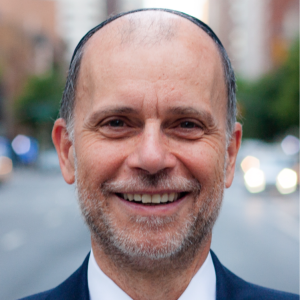
Wednesday Jan 04, 2023
Funding Diversity in the US - Show #98
Wednesday Jan 04, 2023
Wednesday Jan 04, 2023
Marko Issever is CEO of America EB5, a company that works with immigrants on getting a visa through an investment program. I’ve known Marko for a few years and enjoyed having the time to learn more about the specific work he does. It’s fascinating.
Before diving deep into the EB5 visas, he explains the different types of visas a person can request for extended stays in the United States.
First, they break down into immigrant versus non-immigrant. Non-immigrant visas include part time stays for students, tourists and part-time workers.
Immigrant visas can be family based or employment based. Employment based visas fall into five categories:
EB1 – Exceptional people who are well known due to their accomplishments in academics or business, performances, or sports ability. They are well known or featured in the news. They can self-sponsor to apply for a visa.
EB2- Highly educated people that have at least a Masters Degree and have a job offer in an area that domestic companies have a hard time hiring.
EB3- Nonskilled worker that are needed particularly in a needy or growing area. Again, the workers must have a job offer and apply.
EB4 – Religious leaders such as Rabbis, Imams, and Priests can apply for a visa under this category.
EB5 – Investors can apply under this visa to help stimulate employment in the US.
The EB5 visa is the area that Marko specializes in and what we discussed in more depth. It applies to global marketing as it offers people from around the world a chance to come to the United States to expand their community and bring their diverse experience to the US.
Originally, the program offered a visa to a US immigrant who invested $1 million in a business and hired at least 10 people for at least 2 years. This partially worked, but put a difficult burden on some investors who could invest the capital but had a hard time fulfilling the 10 employee requirement.
The US kept this program but started another called the Regional Center Program (RCP) that has the authority to create opportunities with multiple investors to keep the international investments coming in, and also allow support in how the jobs are created.
The RCP coordinates multiple investors to create bigger projects which is easier to create jobs.
So, the visa applicant can work with a US developer and a bank to finance the project to create a financing tool with the following investments:
EB5 visa applicant – 20%
Developer – 20%
Bank financed debt – 60%
Marko says that the expected return is $5 for every $1 invested.
It’s a win-win:
- The developer hires the local people and runs the project which creates more stable jobs. And they’re motivated to get the job done with favorable funding.
- The bank wants secured projects with experienced and connected developers.
- The EB5 investor can get the credit for hiring employees and thus receive a visa.
For people outside the US, if you have $1.5 million dollars that you can invest for 5 years, you can apply for an EB5 visa and Marko can assist you in the practicalities of making it happen.
We then discussed who are the people that apply for these visas. Marko says that about 80% of them are families of students that are studying in the US. The students can get a student visa but can’t work in the US after graduating. By staying in the US for work, they get practical work experience and can earn higher wages. After spending $250k-300k for a US education, the higher salaries help increase the return on their educational investment. If they return to their home countries, they may make a fraction of the salary. By getting 3-5 years of entry level experience in the US, the graduates can return to their countries at a higher level so it’s a real advantage to get the US work experience.
Parents with the means, invest the money to increase opportunities for their children.
A person approved for an EB5 visa can bring in their spouse and children under 18 years old. On average, the EB5 applicants use 3 visas for each investment.
With only 10,000 EB5s available each year, that means there are approximately 2500-3000 investors each year for about $1 million each.
Marko said that historically, Chinese families received most of the EB5 visas. In 2004, the program was marketed to other countries such as Indonesia, Vietnam, Russia and Korea and limits were increased for the number of visas granted to each country.
Chinese are still prominent in applying for the Visa but there is more diversity in applicants now.
Recently, they instituted new guidelines to carve out projects for specific areas.
- Infrastructure – investments in large scale, and needed infrastructure.
- Rural – 200 visas were added for investors who want to focus on rural investment. This has no country restrictions.
- Standard – investment in areas where unemployment is 150% or higher than average.
When I asked whether this was a program for rich people to buy their way into the United States, he explained that the typical family doing this has a net worth of about $3-10 million. They decide to invest a substantial amount of their net worth into an opportunity for their child(ren). If a family is extremely wealthy, they can do the original EB5 visa and invest $10-50 million and enter the US. The families utilizing this program anxiously wait to get their investment back. It’s not just a one-sided benefit for the families.
The US benefits from international investments, job creation, and funding for projects in areas that might be overlooked.
With 2500-3000 investment visas, over 30,000 jobs are created in the US.
The students who study in the US and then work with the EB5 visa are lawyers, medical professionals, doctors, IT experts and more. Even if the EB5 visa is pending, companies can offer the graduates a job and hire highly qualified global citizens.
After Marko graduated with an MBA from the Wharton School of Business at the University of Pennsylvania, he had trouble getting a job having to answer the dreaded question…. Do you have authorization to work in the US? He had to find a sponsor company that would help with the visa process. The EB5 program changes that as students can say that the application is pending and the companies can hire them.
The advantages of the EB5 program are tremendous:
- Expands the high-quality talent pool for hiring managers in the US
- Allows the hiring company to hire for merit and experience rather than just legal eligibility
- Adds international experience to the domestic team
- Gives a resource to open business in the new employee’s home country
- Adds diversity of thought to the team which increases creativity, and innovation
We ended the discussion on how he attracts new clients interested in EB5 visas. He said that his website, www.americaeb5visa.com is translated into 25 languages. He knows the importance of high quality translation so he had humans do the translation – he would not use Google Translate because the quality is not good enough.
If you’d like to reach out to him to learn more, you can reach him on WhatsApp at 917-355-9251 or at info@americaeb5visa.com or on his website at www.americaeb5visa.com
Links:
WhatsApp at 917-355-9251 or at info@americaeb5visa.com or on his website at www.americaeb5visa.com
Connect with Wendy - https://www.linkedin.com/in/wendypease/
Connect with Marko https://www.linkedin.com/in/markoissever/
Music: Fiddle-De-Dee by Shane Ivers - https://www.silvermansound.com

Wednesday Dec 21, 2022
Water, Nuance, Translation, and Hiring - Show #97
Wednesday Dec 21, 2022
Wednesday Dec 21, 2022
Kael Campbell, President of Red Seal Recruiting Solutions, is all about family, kids, business, enjoying life and water! In this episode the theme of water permeates our discussion of language, travel, his recruiting company, and translation.
As the sponsor of the podcast, Rapport International, provided an appropriate tidbit to launch the episode. Did you know that both Finland and Sweden have a word to describe that beautiful long reflection of the moon’s light on a lake?!
In Finnish, the word is “kuunsilta” (Google Translate defines it as “moon bridge” even though we don’t have a meaning for that in English) and in Swedish, the word is “mångata” (which Google Translate inaccurately defines as “many”).
As an avid fisherman (see his YouTube channel at https://www.youtube.com/@fmb-fishingmeansbusiness), free diver, and lover of all things water, that was an appropriate tibdit to launch Kael’s episode. Even though we didn’t discuss where his company got the name Red Seal – I would guess that it has something to do with water. Red Seal Recruiting specializes in recruiting for manufacturing, mining, and construction industries for management, engineering, trades and technical roles. With a shortage in hiring around the world for these positions, he leverages his cultural and language knowledge to help people who may not speak the local language fluently, or at all, to find professional jobs to leverage their experience. He has intentionally hired a diverse team that speaks 7 languages to help recruit expats, immigrants, and even second generation immigrants who might be more comfortable speaking in their home language.
He notes that currently, Toyota in Toronto is recruiting and interviewing in five languages to attract good employees. If employers can understand a person who speaks with a heavy accent or build systems to accommodate non-English speakers, they have a huge advantage in recruiting qualified and experienced employees, particularly in the fields his company focuses on.
Currently, with the influx of refugees from the Ukraine, he is helping highly trained people find new jobs in Canada and the US. He talks of a Ukrainian woman with limited English skills who was the lead materials engineer for the largest Ukrainian construction company. As he tried to figure out her experience, she showed him pictures of the work she did and they used Google Translate to navigate the discussion. She has tremendous experience and technical abilities to share with local engineers. He is confident that he will find her a good job.
As for employers, we spoke about their interest in hiring non-English speakers and their tolerance for language issues. He asks at the beginning of each engagement about their willingness to hire people trained outside of Canada or the US since many are underemployed or underpaid. He said that 95% of the employers are open to diversity and many company leaders may have come from another country or travel extensively. And, many executives started with international assignments so they have connections and appreciation for people’s skills from around the world.
Plus, companies in his target industries struggle to find good people, so they are open to new sources of good employees.
If he notices any hesitation or discriminatory practices in the discussion about working together, he does not work with the company as he knows they won’t be a good fit.
Of course, in a discussion about no or limited English skills, the topic of translation arose.
He said that after 18 years in business, they should have a fully translated website that is optimized for search engines. Yet when I asked why he hasn’t. He had a simple answer, “Squirrel.” It’s a common characteristic of entrepreneurs – “squirrel brain” means that you have lots of things to do and you get distracted as you focus on the many areas. He is excited about the new recruitement manager he hired from Latin America that speaks Spanish and his leaderships teams adoption of EOS. EOS is short for Entrepreneurial Operating System which builds a process into your business to make it run smoother.
He and his team meet quarterly to set the upcoming goals. If the team decides this is a priority, he knows that he could get his website translated and optimized in a quarter. (We first connected because his marketing manager reached out to Rapport International to discuss translating their website.)
We dove deeper into the strategy for his website translation. Even though it seems logical to translate content for the job seekers journey through the website, he explained that with all the bilingual managers looking to hire, it also makes sense to translate content for the employers.
We talked about options:
- Translating the whole website, which can be expensive.
- Developing a microsite with 5-10 pages of key content.
- Having a landing page that is search engine optimized.
He recognizes that even if he does a landing page in 5-10 languages and spends $300-500 per language, it would be of great value to the company.
As Kael reflects upon translation, he mentions that even MrBeast translates his videos into Spanish! (MrBeast is a YouTube sensation that does random videos that get lots of followers.)
He also talks about how important good translation is – one word can drastically change the meaning. For example, in English a cabinet maker makes cabinets whereas in Russia a furniture maker makes cabinets. With the help of pictures, he helped a Russian furniture maker look for cabinet maker jobs!
Getting people the jobs is the first step, I asked about his clients and how they fare after building a multicultural team – what do they do to be inclusive. That may be a future episode on the Global Marketing Show podcast.
His final recommendations –
- Keep the dialog going with non-English speakers to find hidden talent.
- Go beyond the resumes of your current employees to find experiences they may not have shared about their international experience to help with engaging your teams.
- Share your vision as a leader of building diverse teams.
His favorite foreign word – “Nuance”, the name of his Toastmaster Chapter. Nuance means the same thing in three languages – English, French, and maybe Spanish. (I looked it up on Google after the episode and learned that nuance is a word in many languages such as Albanian, Danish, Dutch, German, Irish, Portuguese and maybe more.)
Links:
https://www.youtube.com/@fmb-fishingmeansbusiness
Connect with Wendy - https://www.linkedin.com/in/wendypease/
Connect with Kael - https://www.linkedin.com/in/kaelcampbell/
Music: Fiddle-De-Dee by Shane Ivers - https://www.silvermansound.com

Wednesday Dec 07, 2022
Hotels, Buyers Journey, and Translation - Show #96
Wednesday Dec 07, 2022
Wednesday Dec 07, 2022
Steve Lowy, CEO of Umi Digital in London has lived around the world and owns multiple businesses in the hospitality industry – in real estate and Academic offerings including Academic Program creation, Internship Sourcing & Management, Educational Tours and Academic Programming. After successfully growing these services through digital marketing, he launched a marketing agency focused on growing hospitality businesses.
In this episode of the Global Marketing Show, I talk to him about how he leverages his experience in global digital marketing to help other hospitality organizations. It’s exciting to hear as he says on his LinkedIn profile - “I love empowering the underdogs to fight above their weight especially as the hospitality space gets cluttered with big brands.”
His advice on the show is insightful for hospitality organizations looking to increase patronage with local and international guests.
With a passion for eating and international travel, Steve studied hospitality in university in England and then lived in Australia, the S. Pacific, and the USA. At age 24, he managed a 500 bed backpackers hostel and got great experience so he could buy and run his own hotels.
As soon as he started running his own in London, Brighton, and Moscow, he learned the importance of the digital brand for both attracting visitor and allowing online booking. As others in the industry saw his success, he realized that he spent a lot of time educating others in hospitality about how to use digital media. Instead of consulting for free, he saw the opportunity to monetize the education and provide services to support smaller properties and organizations with growing through digital marketing.
During the conversation – I had to ask why he founded a hotel in Moscow in 2009 – he hadn’t lived there or had experience. Steve explained that it was an opportunity – some friends asked him to help them open the hotel. He saw a great opportunity as at that time, there were not many western style hotels close to the Red Square in Moscow. Mostly there were communist style hotels or a few western ones for about $1,000 a night.
Language was challenging since at the time there were not the tools to support their efforts and their buyers were not Russians, but international travelers. In addition, they had to capture the cultural differences of staying at a hotel – like having food accessible.
He does see a shift in the industry with how language is used as organizations shift more to video and visuals. Less written content is being used and depending on your buyer – it may make sense to have translated subtitles or additional translated content. We talked about how important it is to understand the buyer’s journey to determine where and how translation should be used.
Some challenges that organizations face now are the following:
- Drop offs in reservation stage if the third-party booking partner does not translate the reservation platform. The buyer may find the site, read all material, decide to book in their native language, but when they click through to book, it’s in another language. This causes them to move on and not book.
- Untranslated search terms that buyers may use. For example, if Steve optimizes his site for “London” and visitors search “Londres”, the buyers won’t find him. The flow from search, through the website to booking and confirmation must be consistent.
- Not understanding your buyer’s needs – if your ideal customer profile is a business traveler that needs to be close to their meeting site, less content and thus translation will be needed. Yet, if you run a luxury resort, the customer will expect more interaction in their native language. It’s not transactional, it’s capturing the dream of the perfect vacation.
- Determining your price point – consumers desiring a cheap stay will be more forgiving of no translation. Higher priced hospitality providers must provide in language support. They are expecting full service.
To give you an understanding of the importance of translation Booking.com (or Priceline.com in some countries) had 500-1000 translators working on their content. They know that good quality translation offers higher accessibility which results in a better quality score which circles back to more bookings.
Steve discusses how the last couple years have been extremely rough on the hospitality industry with customer expectations increasing, inflation, difficulty in hiring and retaining and wage increases. And that marketing and training are the first budgets to be cut. Yet it’s the marketing that will increase sales. Rather than looking at marketing and translation as a cost, try looking at the ROI (return on the investment) that you can get from attracting new customers.
In London, traditionally he’s translated content into English for the US, French, Spanish and German. Now they are expanding into Chinese – which means for his buyer’s journey they will need translation for : SEO, website, booking, menus, on site information, and staff to speak the language(s). This is a global marketing expansion area for him.
His final recommendations – as he learned in sports – it’s not the big one time gains, it’s the marginal gains that make a difference. Don’t be scared and look for those marginal gains.
Links:
Connect with Wendy - https://www.linkedin.com/in/wendypease/
Connect with Steve - https://www.linkedin.com/in/stevelowy/
https://umidigital.co.uk/
Music: Fiddle-De-Dee by Shane Ivers - https://www.silvermansound.com
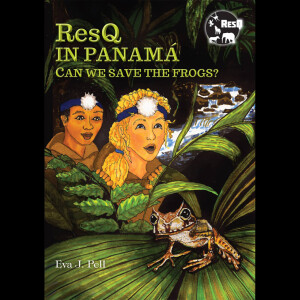
Wednesday Nov 16, 2022
“ResQ” – Translating Science into Fun for Kids - Show #95
Wednesday Nov 16, 2022
Wednesday Nov 16, 2022
Dr. Eva Pell wrote a series of books that bring science, language, culture, endangered species, social issues, and complex concerns to light. The books are BRILLIANT and are a hidden secret for teachers and parents! The books are geared towards children ages 9-12 and will keep them engaged while they learn through adventure and fun. The series include:
- ResQ and the Baby Orangutan – Engineering boy genius Wheaton and his nature-loving cousin Stowe set out on their first mission for ResQ, their organization to save the endangered orangutan in Borneo.
- ResQ Takes on the Takhi (the Mongolian Horse) - A harem of takhi—Mongolian wild horses—wandered out of a national park and into danger. Engineering boy genius Wheaton and his naturalist cousin Stowe shuttle to Mongolia on this second mission for ResQ, their organization to save endangered animals. Against wolves and weather, by helicopter and on horseback, and helped by their new Mongolian friend Sarnai, they struggle to guide the lost horses back into the park before winter sets in.
- ResQ in Panama - All over the world, frog populations are declining, with many frog species headed toward extinction. Cousins Stowe and Wheaton join on a mission to capture and breed endangered frogs on this third mission for ResQ, their organization to save endangered animals. A jaguar, a band of migrants, darkness, and flooding confront them in the indigenous village they make their base. Wheaton’s engineering skills and Stowe’s skills as a naturalist both come in handy as they seek to save not just frogs this time, but also villagers.
Each story has the hero children visiting a different country where they work with locals to save the endangered species.
The characters are fun – Wheaton is a boy genius that understands material science – during the interview Dr. Pell explains that material scientists study the properties of materials like nano technology that will allow us to swallow a small camera for a colonoscopy or cloaking, the material in the invisibility cloak from Harry Potter. Stow, who is Wheaton’s cousin, has dyslexia and is home schooled. Stow is a knowledgeable naturalist who educates about the animals and nature surrounding them on the trips.
While on their missions, they learn words from the local language and explore the culture. Through their experiences, they observe that the locals have tremendous knowledge about the environment that even the smartest scientist from another country couldn’t understand.
Dr. Pell’s story about playing with her grandson, Hudson is delightful as she shares how the idea for the books arose. Instead of fixing the broken leg on the same old stuffed animal, she created stories about traveling to countries all over the world to save animals. They learned what animals lived in what countries and consulted maps before taking off on the sofa that became the spaceship.
As someone who understands that complex problems take a multidimensional approach to solving, Dr. Pell also believes that the best learning comes from a multidisciplinary approach to teaching.
Dr. Pell, before retiring and becoming an author, served as the Undersecretary for Science at the Smithsonian Institution and the Sr. Vice President for Research and Dean of the Graduate School at Penn State.
Check out her books at https://tumblehomebooks.org/?s=resq
And make sure to pass this along to a teacher, school administrator, or parent with children ages 9-12.
Links:
buy on Amazon, Barnes and Noble
https://tumblehomebooks.org/?s=resq
Connect with Wendy - https://www.linkedin.com/in/wendypease/
Connect with Eva - https://www.linkedin.com/in/eva-pell-555070160/
Music: Fiddle-De-Dee by Shane Ivers - https://www.silvermansound.com

Wednesday Nov 09, 2022
From Startup to Global in 4 Years - Show #94
Wednesday Nov 09, 2022
Wednesday Nov 09, 2022
Ben Welbourn, a partner at Verto Education, tells a great story about how they’ve developed a study abroad program that could become the largest university in the world.
He and his two partners worked in the student exchange industry and saw the opportunity for developing a program that offered an affordable, safe place with experiential learning for high school graduates to spend their first university semester abroad. For anyone who has been abroad, you know the benefits from visiting other countries – learning about cultures, connecting with people different from you, being exposed to languages, and experiencing new foods, sights, sounds and situations. The United States has a low level of passport ownership and travel is seen as something you don’t need. Yet, by realizing people share similar wants and needs around the world, countries can develop more fellowship and peace.
The lack of international experience of 17- and 18-year-old young adults combined with their needing to pick an expensive college and decide what they want to do for the rest of their lives, inspired a great idea in the founding team of Verto.
They understood that international and experiential learning in a foreign country could open new possibilities and expose young adults to opportunities they might not have considered.
And they knew that they had to provide a safe, high-quality learning environment so parents would be supportive.
With this great vision, the team set out to sell to their many audiences:
- Stressed students in their senior year of high school
- Distrustful parents who care about child’s next steps
- Counselors and education consultants with influence
- Universities to accept the students after their first semester
- Professors to teach
- Health and Safety operators to keep everyone safe
- Locations around the world for local facilities
By pulling all these audiences together, they had 8 students attend in 2018. By 2022, they have 800 students enrolled. The program has expanded to 6 countries in 4 years and they have ambitious plans to open in other countries in the future!
In the episode, you’ll hear about the strategy for how they picked their first markets, why they ended up where they are now, and how Covid had a lot to do with a change in locations.
Ben admits that knowing what he knows now about the launch and then the pandemic, he doesn’t want to go through those times again.
Currently, they recruit students in the United States and include students from other countries as they hear about the program and apply. For now, they are not marketing in other countries but they plan to in the future. They also plan on opening up other Learning Centers around the world.
Their professors are from quality institutions in the US and the local countries. Many who come for a semester decide to stay on full time even if they were tenure tracked in their prior institution.
In a prior episode, #14 with Brittany Cooper, she talks about how her old company tried to open too fast in too many countries and how that brought them down. This episode is a nice contrast on how to open fast yet be flexible, adapt and be successful.
Another good episode is #09 with Stephanie Hendricks who talks about their strategy for market expansion. Another one to listen to if you are considering new global markets.
Listen till the end when Ben tells the story of his favorite foreign word in Bosnian, olabaviti which means relax or loosen-up.
Full Disclosure from Wendy – my son is in Costa Rica on the Verto Education program and loving it. I am so impressed with the whole program – the professors are good, the location is great, the support team is phenomenal, the communication is fantastic, and my son is getting international experience with a group of fabulous young adults. Next semester he is thinking about going to another country. After that he plans on going to one of their partner schools. I am a HUGE fan of Verto Education.
Links:
Connect with Wendy - https://www.linkedin.com/in/wendypease/
Connect with Ben - https://www.linkedin.com/in/benwelbourn/
Music: Fiddle-De-Dee by Shane Ivers - https://www.silvermansound.com
